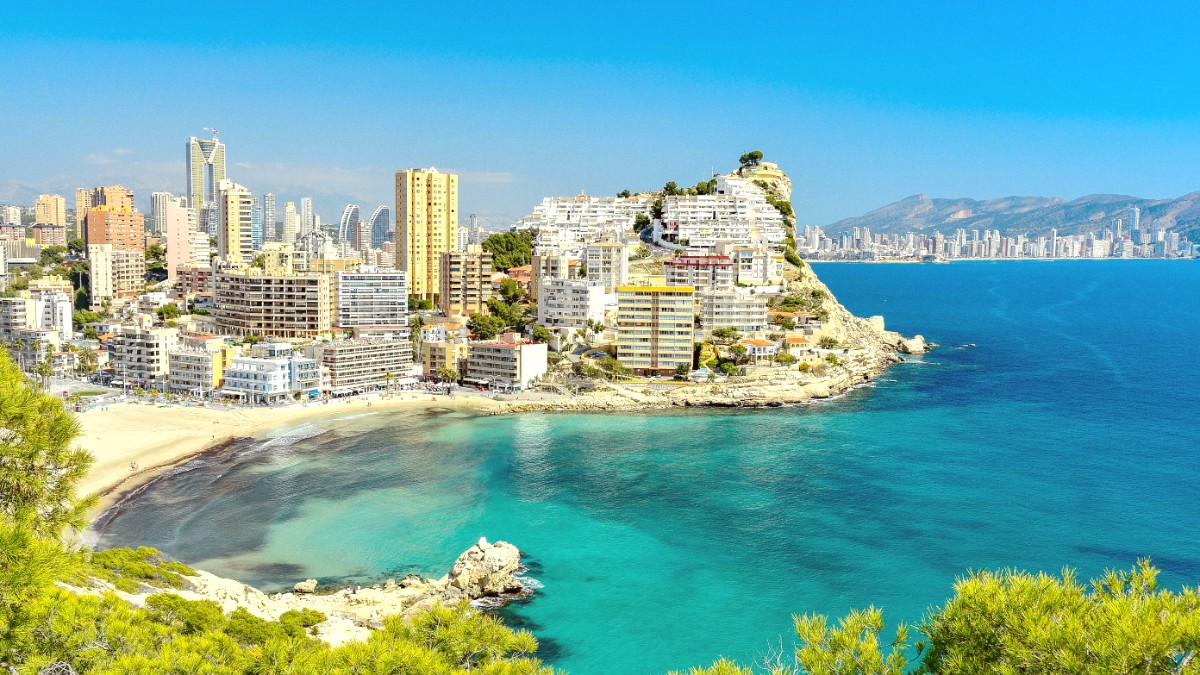
Spain
Spain has major mobile providers: Movistar, Vodafone, Orange, and Yoigo. All feature good network coverage in Benidorm.
Internet access and Wi-Fi are widespread in Benidorm. Most hotels, regardless of star rating, offer free Wi-Fi. Quality and speed vary. Many restaurants, cafes, and bars supply free Wi-Fi.
The official languages in Benidorm are Spanish (Castellano) and Valencian (Valencià). English is widely spoken in Benidorm, especially by hotel staff, restaurant workers in tourist areas, and shopkeepers. Less English may be spoken in smaller, traditional towns.
An eSIM or a local pre-paid SIM card offers cost-effective data for short-term visits. Offline translation apps prove very useful when venturing beyond central tourist areas.
Spanish business hours, especially for smaller shops, often include a midday break (siesta), though this practice is less common in Benidorm's highly tourist-oriented areas.
Generally open: 9:30 AM/10:00 AM to 1:30 PM/2:00 PM. Reopen after siesta: 4:30 PM/5:00 PM to 8:00 PM/9:00 PM. Tourist shops, larger chains, and shopping centers may run longer, continuous hours.
Lunch service: Typically 1:30 PM - 4:00 PM. Dinner service: Generally 8:00 PM - 11:00 PM (or later). Tourist-oriented restaurants might open earlier for dinner, around 7:00 PM or 7:30 PM.
Banks: Open Monday to Friday, 8:30 AM to 2:30 PM. Some feature limited Saturday morning hours. ATMs (Cajeros Automáticos): Widely available 24/7 at banks, shopping areas, and hotels.
Spain observes national, regional (Valencian Community), and local (Benidorm) public holidays. Businesses may close or experience reduced hours. Plan ahead and review holiday calendars for specific dates.
Many water parks and some outdoor theme park attractions close during the low season (winter months, typically November to March). Some smaller, family-run businesses or seasonal beach kiosks may close for an annual holiday period, often in the quieter winter months.
Contact your chosen hotel and tour operators directly beforehand to confirm their specific accessibility features and services. Public transport schedules also vary by season and holiday.
Respectful interactions with local customs and traditions will enrich your Benidorm journey.
A handshake is common for formal introductions or between men. For women greeting women or men, and for men greeting close female friends/family, two kisses (starting with the right cheek) are typical. Always say Hola when entering a shop or restaurant and Gracias when leaving. A simple Hola when passing someone on a quiet street is polite.
Benidorm is a resort town, so casual and relaxed attire predominates. Swimwear is acceptable on the beach and around the pool. Cover up when leaving the immediate beach area. Avoid walking around town in just a swimsuit. When visiting churches, modest dress means covering your shoulders and knees. Smart casual attire at finer dining establishments or shows.
Meals are social and often lengthy. Do not feel rushed. Waiters will not bring the bill until you ask for "la cuenta, por favor." Tipping is not obligatory, but rounding up the bill or leaving a small amount (5-10% for good service) is appreciated. For casual drinks, a few coins are sufficient.
Photography is generally permitted in public spaces. Always ask for permission before photographing individuals, especially children. A simple gesture and "Permiso?" (May I?) are often effective. Be discreet and respectful in religious sites; avoid photos if signs prohibit it or if it interrupts a service. Do not photograph military installations or police personnel.
A few basic Spanish phrases show courtesy. Be mindful of personal space and volume in public settings. Patience and politeness go a long way.
Benidorm has made outstanding progress in becoming an accessible destination for travelers with mobility challenges.
Both Levante and Poniente promenades are wide, flat, and well-maintained. These are ideal for wheelchairs, mobility scooters, and strollers. Benidorm offers "Accessible Beach" points (e.g., in Levante and Poniente). These locations feature ramps, adapted changing rooms, showers, and assisted bathing services during summer months, often with specialized chairs for water entry. Many pavements across the city are wide and have dropped curbs. Newer or renovated hotels often feature accessible rooms with roll-in showers and grab bars.
Major theme parks like Terra Mítica and Mundomar display accessibility provisions, including ramps and accessible restrooms. Many museums and public buildings also focus on accessibility. Newer buses and trams are generally wheelchair accessible, with ramps and designated spaces. Some taxi companies may offer accessible vehicles.
Contact your chosen hotel and tour operators directly beforehand. This allows confirmation of their specific accessibility features and services. Additionally, check if Priority Pass lounge access or Compensair flight compensation services are relevant to your journey planning.